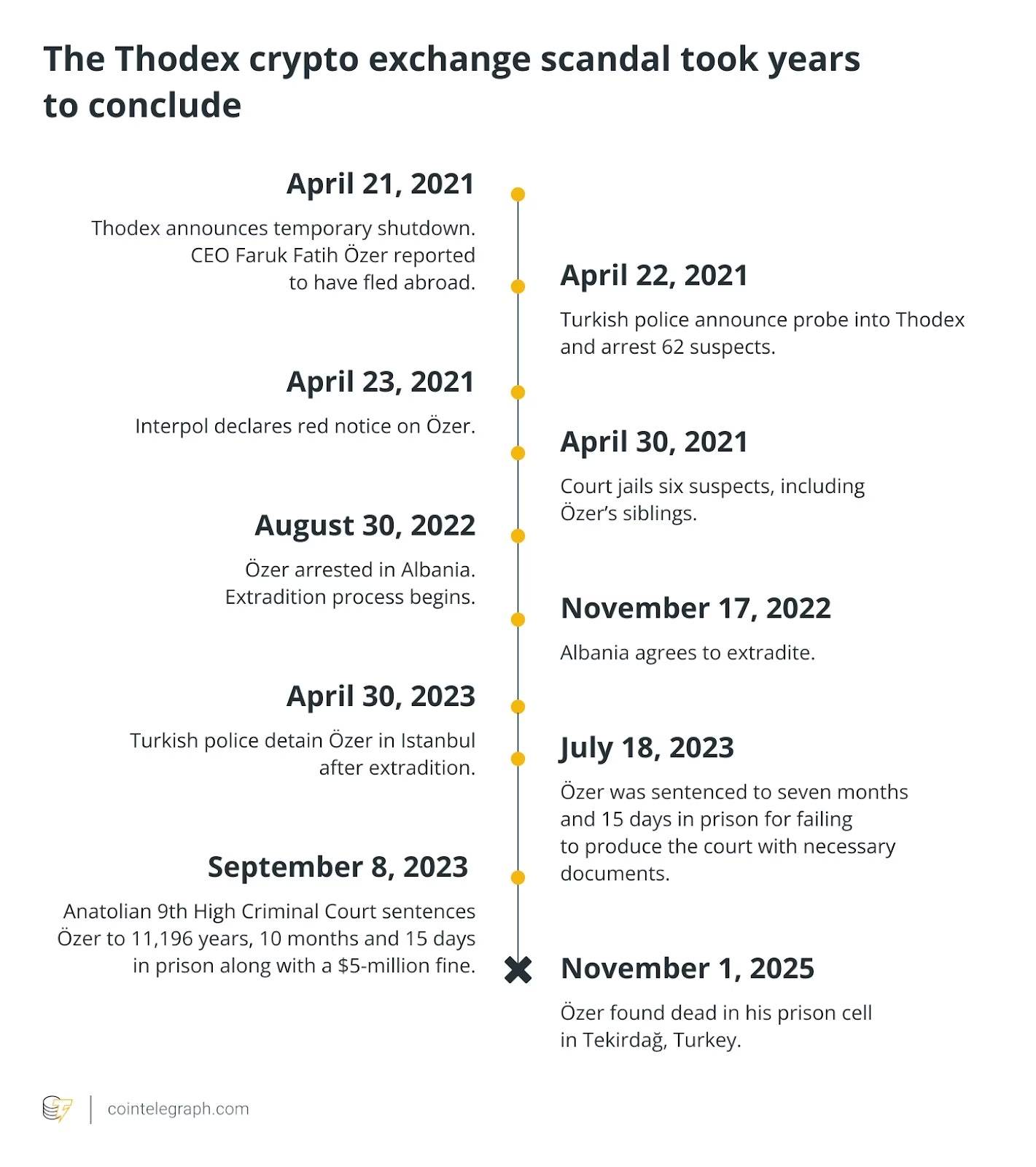Faruk Fatih Özer was found dead in his prison cell on Nov. 1. The former CEO of now-defunct crypto exchange Thodex was serving an 11,000-year sentence for running one of the largest crypto scams in history.
His death marks the latest turn in the Thodex saga, with ripple effects so significant they altered Turkish cryptocurrency laws.
The initial details of Özer’s death point to suicide, but the investigation is still ongoing. It has once more brought Thodex back into the spotlight.
Here’s a look back at Özer’s story, how the crypto exchange impacted Turkish law and how it may have contributed to the country’s increased crypto adoption.
$2-billion Thodex scam sees raids, arrest and CEO out on the lam
On April 21, 2021, Thodex cryptocurrency exchange suddenly shut down trading and withdrawals. The initial announcement read that this could continue for four to five days. As Cointelegraph Turkey reported at the time, the exchange claimed that this was to improve its operations with the help of “world-renowned banks and funding companies.”
But local media reported that Özer had fled to Thailand with over $2 billion in funds as part of an exit scam. There were also reports that police had raided the exchange’s offices in Istanbul.
Istanbul’s chief prosecutor’s office corroborated the reports the following day. It announced a probe into Thodex and said police had arrested 62 people allegedly involved in the scam. Özer denied the accusations, claiming his trip abroad was to meet foreign investors.
As of April 30, 2021, a Turkish court decided to jail six suspects, including family members of the missing CEO and senior company employees, pending trial. Interpol also issued a red notice for Özer.
“When he is caught with the red notice, we have extradition agreements with a large part of these countries. God willing he will be caught and he will be returned,” said Interior Minister Süleyman Soylu.
Özer managed to evade capture for over a year. Albanian authorities eventually detained him on Aug. 30, 2022. He attempted to appeal extradition in court, but the decision was upheld, and Özer was in Turkish custody by April 30, 2023, two years after the scandal began.

The case against Özer was swift. In July 2023, just three months after arriving in Turkey, he was sentenced to seven months and 15 days in prison for failing to submit certain documents requested…
Click Here to Read the Full Original Article at Cointelegraph.com News…
